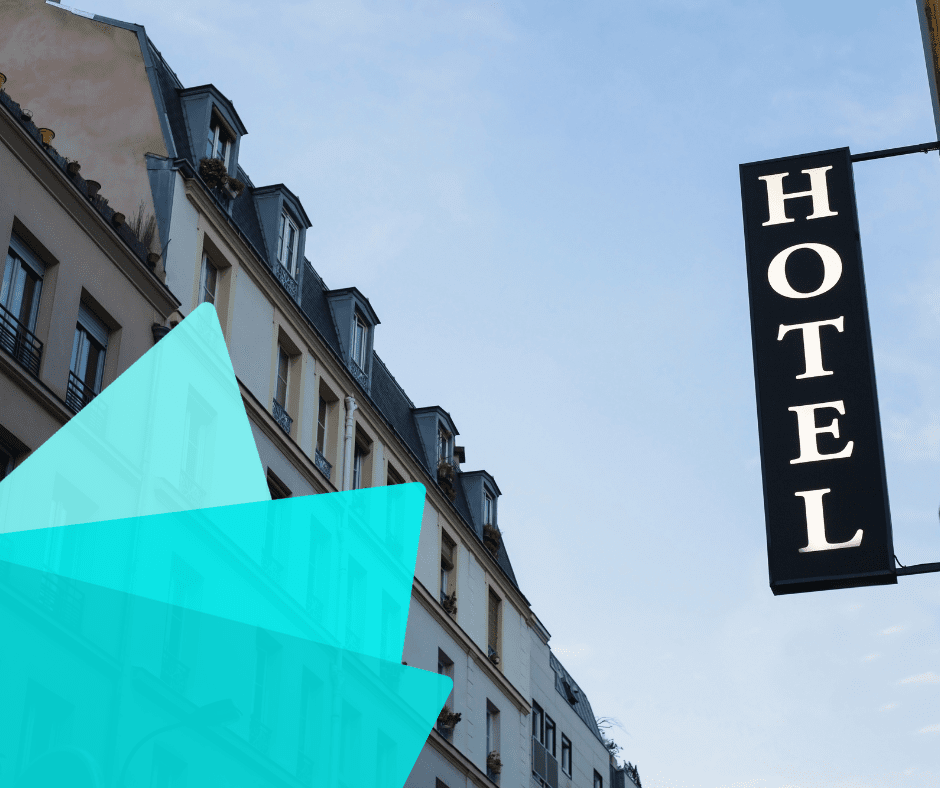So you’re looking at boosting your hotel’s digital marketing efforts and PPC seems like the best way forward. With over 1.2m businesses using the platform globally, it is easy to see why. Plus, PPC for hotels is an irrefutable source of valuable online traffic. However, only if it is used correctly… Going in gung ho without a strategy in place will see you splurge budget unnecessarily, attracting a slew of viewers that are unlikely to have a real interest in what you are offering.
In this pitstop guide, we outline some of key things to take into account when setting up your hotel’s Google Search Ads and the resulting benefits that these adjustments will offer your campaigns in return.
Top of the Page for Relevant Searches
Now, whilst you do have to pay for advertising on Google, it does come with the undeniable perk of seeing your hotel perched at the tip top of the SERP (search engine results pages). Think of it as the search platform’s penthouse suite – sitting on the top floor, the envy of the standard double rooms below but comes with the inevitable extra cost…
One of the primary benefits of staying at the very top of the rankings is reducing payouts to third party providers. We understand that the likes of Booking.com and Expedia do bring in a wealth of relevant traffic. We also understand that giving them a cut can diminish the ROI slightly… By getting your own website to the top of the SERP, you are increasing the odds of people coming direct to you.
Given the ever-morphing Google algorithms in place, even those with insider knowledge on how they work can’t guarantee that they will be sitting pretty on top every time. However, there are a couple of tips to help you improve your case:
Bid more. Funny, isn’t it, that Google prioritises those who are willing to spend a little more on the platform. But, as the old adage goes, money makes the world go round. And when it comes to Google search ads, this saying may as well form part of the . By upping your bids, you will improve your chances of appearing at the top of the SERP. But then again you’ll be spending more budget. This is where it all becomes a bit of a balancing act. The key is in making sure that you are bidding enough but not splurging. Plus, always make sure that all campaigns are optimised before pressing play. Otherwise you’ll be throwing a lot of dosh at an audience that may not necessarily be relevant to you.
Optimise landing pages. Website relevance is key to Google’s algorithms when it comes to their search ads platform. The way that they measure this? Landing page experience (LPE). Essentially, this matches the relevance of your keyword/advert to the landing page that you are sending them to. For example, if you are running ads for the keyword “best hotels in Porto” for your establishment that is strictly based in Lisbon, Google will know about it and you aren’t likely to score too well. LPE contributes to your advert’s overall Quality Score, which is marked from 1 – 10. The best means of raising your LPE and therefore Quality Score? Well, first of all ensuring that your page – and indeed business – is relevant is the first step. Secondly, ensuring that the target keyword appears on said landing page also helps your case.
Accurate Targeting of Your Hotel’s Clientele
One of the best reasons for running PPC for hotels is the accuracy with which you can target your desired audience. Google allows you to whittle down ad recipients by the likes of age, gender, location and device. This means that you can focus spending your ad spend on those that you deem more likely to convert.
Look at it this way… If you are running a hotel or hostel based in Bangkok with the aim of attracting party-loving traveller types on a weekly basis, then a youthful target audience is probably the best way to go.
You can target your bidding to focus on people within a particular age bracket. Plus, if you were really inclined, you could bolster your location’s reputation by aiming your ads at those from countries that possess a reputation for merrymaking. Ireland and Australia are probably good places to start, if so.
Disclaimer: No offence was meant to anyone of any given nationality. We have nothing but respect for the raucous, outgoing nature of the people of Ireland and Australia.
Here are a few good demographic targeting tactics to begin with:
Age. As mentioned above, it isn’t often that target audiences have a particular age bracket attached to them. As mentioned above, you probably don’t want to be aiming party hostel adverts at those in the 65+ age bracket. Or maybe you do, in which case this demographic specification feature comes in handy regardless.
Location. Bidding by location is an absolute must for any strategy regarding PPC for hotels. As well as targeting specific areas, Google lets you choose which areas you wish to prioritise through bid adjustments. Also, bidding can be based on people either in these areas or with an interest in these areas. So choose your targeting strategy wisely.
Time/day. Google Search Ads allow you to choose exactly when your ads are placed in front of the audience. By specifying your peak booking days/hours, you will be more likely to present your ads to the right people at a time that they are most likely to commit to a booking.
Parental status. Not necessarily useful for every business looking to utilise Google Ads. However, this can be an extremely good angle for those setting up PPC for their hotel. Family-focused hotels can literally ensure that their ads are targeted at those with children. Likewise, child-free hotel owners can target those without kids. A no-brainer if you fall into either of these brackets.
When it comes to targeting it all comes down to observing, testing and optimising. You can never truly rest on your laurels. By using the data to see what works and what doesn’t, you can make sure that your hotel’s ads are landing where you want, when you want and with who you want.
Accurate Booking Data Through Analytics
At the end of the day, as a travel marketing agency, we know that all you are really after is bookings to help boost your hotel’s business and general profile. Through streams of accurate data, Google Ads (along with Google Analytics) builds a vivid picture of how your paid digital marketing efforts are operating.
This gives you a crystal-clear idea of ROI and the basis from which you can tinker with future paid campaigns to achieve optimal results. By tracking user activity, you can see the clicks, impressions and cost of your search campaigns. But most importantly you can decipher exactly how, when and why people are converting.
This undeniably valuable source of information not only operates as a performance barometer, but also puts all the useful performance indicators in one pretty package for you to show to owners or potential investors.
If you are looking into boosting your digital marketing by implementing a PPC strategy for your hotel, hostel or villa but aren’t quite sure how or where to begin, contact our team of travel marketing specialists by emailing online@signifydigital.com or calling 02072886206.



